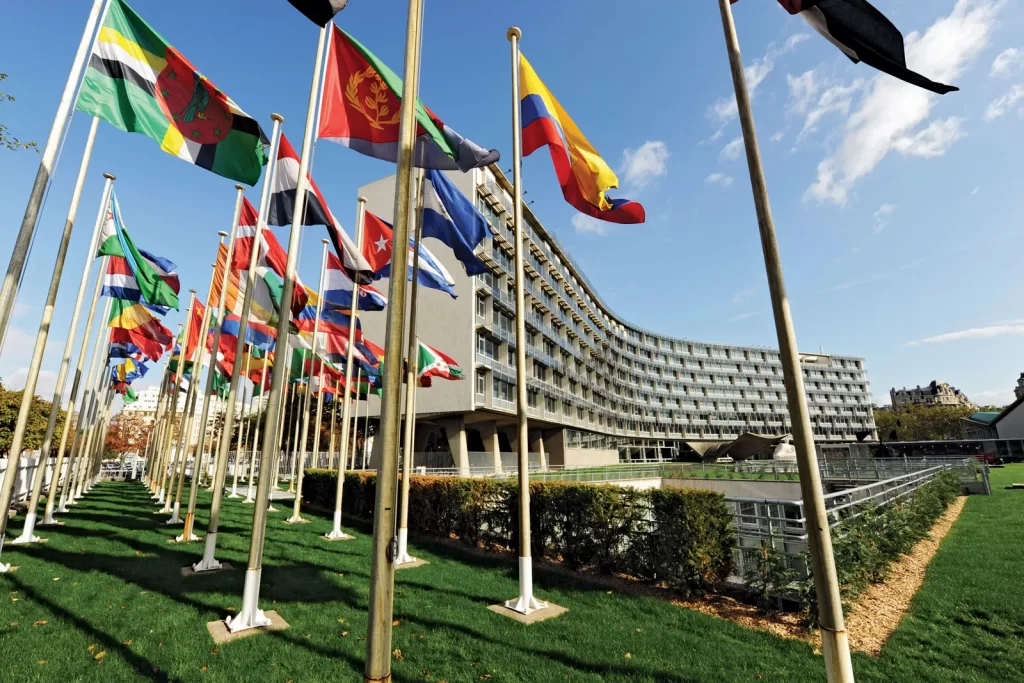Paris/New York, July 11 – The United States has retaken its seat in the U.N. Educational, Scientific and Cultural Organization (UNESCO) after a five-year absence to tackle global challenges such as the ethical framework for artificial intelligence and ocean protection programs, the Paris-based organization said.
“This is a historic moment,” said Audrey Azoulay, the director general of UNESCO. “Our organization is once again moving towards universality. I also want to share this victory for UNESCO with the entire United Nations family, because it is excellent news for multilateralism as a whole. If we want to meet the challenges of our century, there can only be a collective response.”
“This is not only an excellent track record, but also a roadmap for the future,” Azoulay said. “The return of the United States, and the additional resources that go with that, will help us to provide even better support for everyone around the world: pupils and students, researchers, academics, artists, educators, journalists – all those on whom our daily work is focused. UNESCO will also have more resources for its two strategic priorities, Africa and gender equality.”
Washington decided in June to return as a full member and the organization’s General Conference on June 30 voted 132-10 to approve the request. Russia, North Korea, Belarus, China, Eritrea, Indonesia, Iran, Nicaragua, Syria and the Palestinian delegation voted against.
UNESCO said U.S. Secretary of State Anthony Blinken informed Director-General Azoulay on July 9 that he had just signed the United States’ Document of Acceptance to the UNESCO Constitution to become the 194th member.
The organization said in a press release that the U.S. had cited reasons for its return to Azoulay and they included appreciation in the way in which UNESCO had succeeded in modernizing itself in recent years, “highlighting the launch of new initiatives to tackle contemporary challenges (including a global ethical framework for artificial intelligence and ocean protection programs), the implementation of management reforms that have made the organization more efficient, and the mediation efforts that have eased internal political tensions, particularly over the Middle East.”
The Trump administration withdrew from the organization in 2017, a decision that took effect the following year, citing anti-Israel bias and mismanagement. The U.S. withdrew for the first time from UNESCO back in 1984 under the presidency of Ronald Reagan after charging it with mismanagement, corruption and advancing Soviet interests.
In its written proposal to rejoin, the U.S. said its demand is based on a concrete financial plan to pay an estimated arrear of US$619 covering the five years of its absence.
UNESCO said on June 30 that the U.S. will fund the equivalent of 22 per cent of the regular budget of US$534 million. “To this will be added the progressive payment of their arrears and, as of 2023, voluntary contributions to fund programs including those supporting access to education in Africa, the memory of the Holocaust and the protection of journalists.
“UNESCO will thus benefit from a reinforced budget to implement its programs for education, culture, science and information. It will also be able to step up its actions for Africa and gender equality, two of its strategic priorities.”
“UNESCO’s mandate – education, science, culture, freedom of information – is absolutely central to meeting the challenges of the 21st century. It is this centrality, as well as the easing of political tensions within the organization and the initiatives launched in recent years, that have led the United States to initiate this return.”
“UNESCO has thus been able to launch new initiatives enabling it to fully grasp the challenges of today – such as the ethics of artificial intelligence and the protection of oceans. It has also returned to emblematic field campaigns – such as the reconstruction of the old city of Mosul in Iraq – in line with its historic ambitions.”
United Nations correspondent journalists – United Nations correspondent journalists – United Nations correspondent journalists – United Nations journalism articles – United Nations journalism articles – United Nations journalism articles – United Nations News – United Nations News – United Nations News

